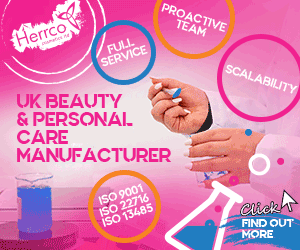A UK All Party Parliamentary Group on Beauty, Aesthetics and Wellbeing (APPG) has published a call to action following its inquiry into the sector’s recovery from Covid-19.
The group of MPs, chaired by Carolyn Harris MP and Judith Cummins MP, launched the inquiry following concerns from industry leaders that the sector was struggling to bounce back after the pandemic.
The British beauty industry, once worth £30bn, has been ‘decimated’ by the pandemic, according to the APPG.
The group found many businesses are facing debilitating staff shortages post-Brexit and due to inadequate funding for apprentices.
In addition, the deficit in consumer confidence has meant that 66% of beauty businesses remain either partially or fully reliant on government support to function.
The report further highlights that the pandemic has taken a huge toll on the physical and mental health and wellbeing of the UK public; it adds that the sector pays a crucial role in supporting this, taking pressure of the NHS, and helping to treat long-Covid symptoms.
Yet staff shortages and a complete lack of government recognition hinder the sector from fulfilling these needs, the authors say.
As such, the group has made key recommendations for the UK government to ensure that the sector is not left behind in the UK’s post-Covid recovery:
1. Broaden apprenticeship incentives for employers, in particular for small and micro businesses;
2. Include further accessible and broader holistic and complementary qualifications in the National Skills Fund;
3. Recognise the crucial role of holistic and complementary therapies, and the crucial role these can play in taking pressure off the NHS.
These recommendations are said to be based on evidence given in public inquiry sessions and written submissions from a wide range of stakeholders including trade associations, industry operators and education providers.




